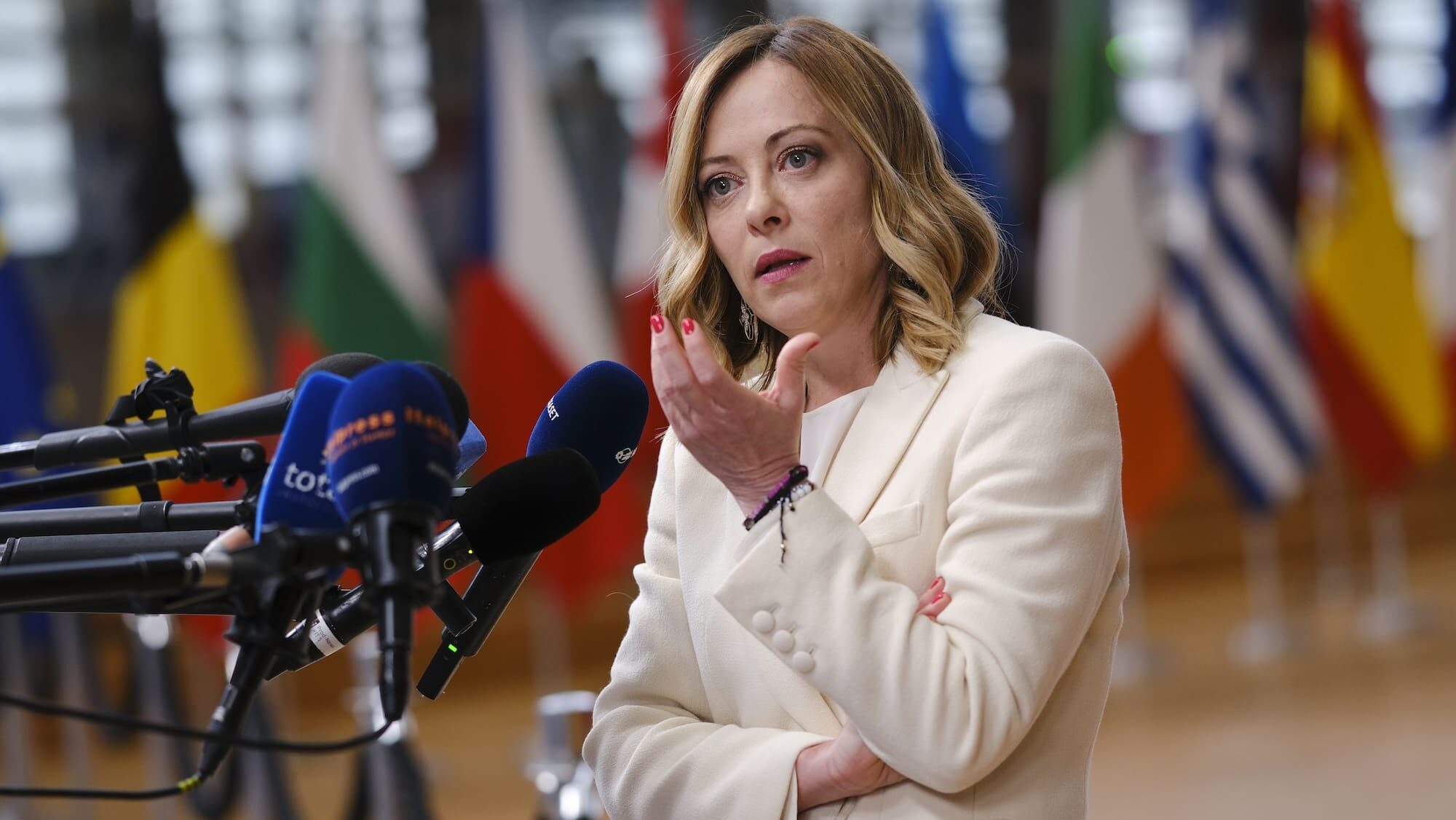
Italian PM Giorgia Meloni
Photo: © European Union
As expected, Italy’s conservative prime minister Giorgia Meloni was not impressed by the deal reached by the leaders of the center-left ‘Ursula coalition’ overnight and hinted at refusing to accept it during this week’s Council summit in Brussels.
The “big three” parties, as they are still commonly referred to—despite Meloni’s European Conservative and Reformist (ECR) group overtaking the liberal Renew as the third largest group in the European Parliament—have carved up the EU’s top positions between them without involving the Italian PM, the only major leader who emerged victorious from the EU elections.
As we explained, the provisional deal means European People’s Party’s (EPP) Ursula von der Leyen is set to continue as EU Commission President, the European Council (EUCO) presidency will go the social democrats’ (S&D) ex-Portuguese PM António Costa, and the EU’s foreign affairs service will be led by Estonia’s liberal (Renew) prime minister Kaja Kallas.
Meloni, as head of the third largest group, was called by phone only after the deal was reached, presumably to inquire about the price of her support, which might be particularly needed to confirm the nominations in the European Parliament.
However, the Italian prime minister is not having any of it. Speaking at the Italian parliament in Rome on Wednesday, June 26th—just a day before the start of the Brussels summit—Meloni snapped at her fellow EU leaders for ignoring her and the democratic mandate given to the conservatives by the voters.
“No true democrat who believes in popular sovereignty can find it acceptable that in Europe, discussions on top positions were attempted even before going to the polls,” she said before the Italian deputies.
“The logic of consensus is being overshadowed by backroom decisions, where a few decide for everyone, which, on behalf of the Italian government, I have contested and do not intend to share,” the prime minister said.
Meloni then fired a warning shot toward those in the ‘Ursula coalition,’ saying that imposing this logic on others is a mistake, and that “a fragile majority is likely to face difficulties during the legislature.”
Il mio intervento di replica in seguito alla discussione generale sulle Comunicazioni in vista del prossimo Consiglio europeo. Seguitemi in diretta. https://t.co/R2Mz3R5VD6
— Giorgia Meloni (@GiorgiaMeloni) June 26, 2024
As the Council requires only a qualified majority support to nominate von der Leyen for Commission president again, and the leaders behind the deal already represent around 60% of the EU’s population, the deal could be approved even without Italy if need be.
However, as the center-left coalition just barely has the majority in the Parliament needed to approve the nomination, Meloni’s support might be crucial during the mid-July vote in Strasbourg.
Previously, Meloni has asked for an executive Commission vice-presidency for Italy and two parliamentary vice-presidencies for her ECR group, as well as certain guarantees about specific policies, including climate and agriculture, in exchange for her support for von der Leyen.
However, all this disrespect for the outcome of the EU elections—as well as the leftist coalition members, S&D and Renew threatening to withdraw if EPP makes any deal with ECR—might just have upped the stakes.
“They decided to proceed without us. At this point, nothing is certain, not even the parliamentary support of the ECR group for a second mandate for Ursula von der Leyen,” an Italian government source said.
